Movie Review – Shining, The
Principal Cast : Jack Nicholson, Shelley Duvall, Danny Lloyd, Scatman Crothers, Barry Nelson, Phillip Stone, Joe Turkel, Tony Burton, Barry Dennen.
Synopsis: A family heads to an isolated hotel for the winter where an evil and spiritual presence influences the father into violence, while his psychic son sees horrific forebodings from the past and of the future.
************
Heeeeeere’s Johnny!
It begins with a tempestuous rendition of Dies Irae, and ends with one of the more haunting moments in modern cinematic history – Jack Nicholson’s body draped in snow within the Overlook Hotel’s iconic hedge-maze – and cemented itself in Hollywood folklore for any number of reasons, both in front of the camera, and behind. It would become Stanley Kubrick’s magnum opus, the film for which he’s most closely associated, and an example of how terrifying modern horror could be if given the right treatment. The Shining wasn’t always the classic it’s portrayed as, however: in its theatrical debut, it was met with a sense of critical indifference, before audiences began to warm to its open-ended chills and the crystallizing performance of Jack Nicholson. The impact of The Shining has echoed down through the decades since, with many of the film’s memorable scenes and moments of dialogue becoming embedded into popular culture; hell, there was even an annoying one-hit wonder titled “Here’s Johnny”, which sampled Nicholson’s infamous line to Shelley Duvall as he’s axing his way through the bathroom door. Pixar even made reference to it in Toy Story, with the carpeting of the Overlook making a reprise inside key antagonist Sid’s home.
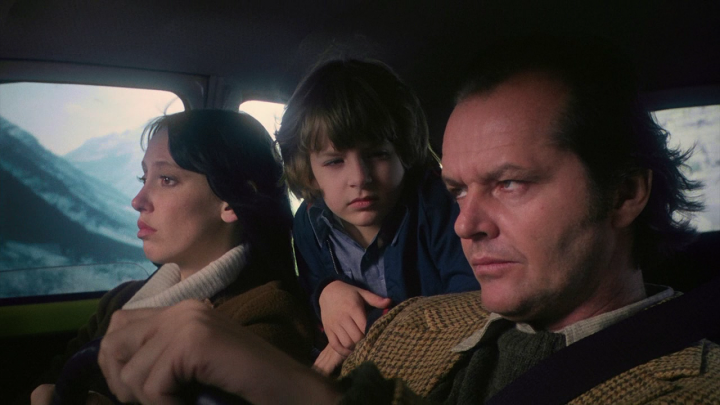
Kubrick’s film was released barely 3 years after King’s novel debuted, which is considerably fast turn-around from page to screen, and although King’s book as written probably isn’t suited to a feature length film (the book was remade into a rather excellent 3-part television mini-series in 1997 – go check it out, if you’ve not seen it), the author himself was, and continues to be, entirely disapproving of Kubrick’s final product. Although certainly not without merit, King’s complaints stems largely (that I’m able to determine) from Kubrick’s reduction in several aspects of the book’s thematic throughlines, as well as the young Danny’s ability to “shine”, of see into the future (and past), which is a key element to the psychological horror of the movie. The film also had Nicholson play lead character Jack Torrence as “too whacky” from the start, rather than slowly slide into madness during the film. Whether King has a point isn’t the debate of this review, but it’s worth noting that people who’ve seen the film but not read the book will likely encounter a different experience once they do so. [Edit: I should mention, my personal opinion is that the book is better, but that shouldn’t take away from just how magnetic this film is!]
Nicholson, who had scored a monster hit and critical success with One Flew Over The Cuckoo’s Nest in 1977, plays Jack Torrence, a writer struggling with block and needing to find solitude to start his next book. He takes on a caretakers role at an isolated ski resort, the Overlook Hotel, over the winter period, and takes his family – wife Wendy (Shelley Duvall, who would go on to play Olive Oyl in the love-action version of Popeye, starring Robin Williams) and Danny (Danny Lloyd), a young boy who has recently started having visions. 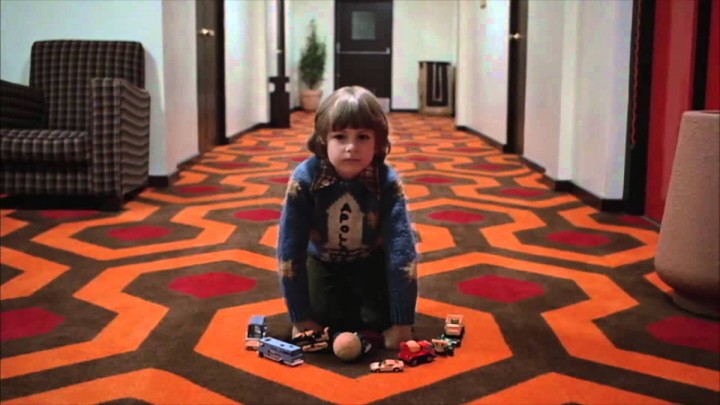
Against the concerns of Wendy, Jack and his family take up residence, but are warned by the hotel’s chef, Dick Halloran (the voice of Hong Kong Phooey, Scatman Crothers) about past events in the mysterious room 237, where a horrific murder took place. Danny, sensitive to the spiritual world, begins to experience visions, while Jack starts to find his mental state unravelling as the isolation, and apparent subversive actions of his wife begin to take its toll. Jack is also given to visions, notably of a bartender, Delbert (Phillip Stone), as the winter sets in, and no help is coming.
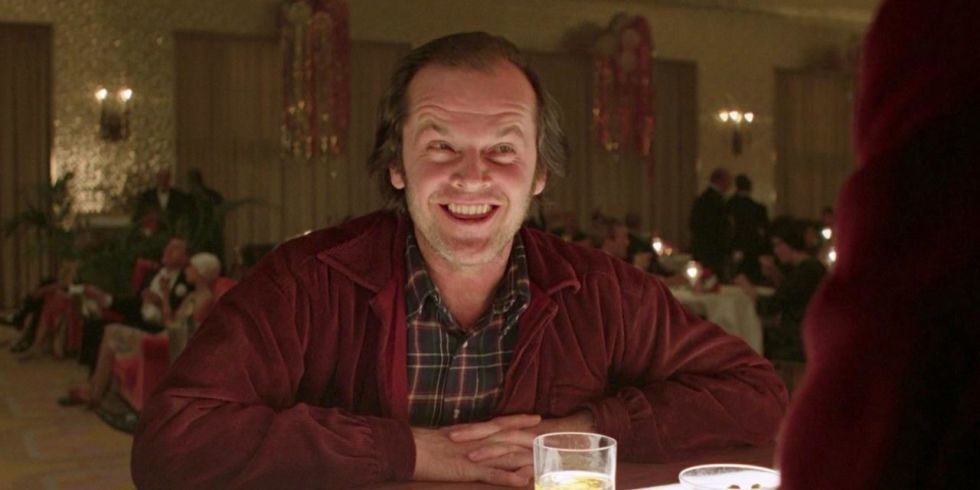
Of all Kubrick’s films, I doubt one has had so much cultural impact as The Shining. The film nearly transcends genre, almost becomes a film above and beyond the structures and scaffolding of a particular type of movie, and just exist almost in a vacuum. Watching it, the film does lean into its horror roots considerably (famously, a trailer for the film featured a key sequence where an elevator shaft began leaking blood, before the doors opened and a torrent of red gore flowed out to flood the camera), the film’s focus on Nicholson’s unhinged performance and the creepy, atmospheric visual and aural atmosphere Kubrick brings to bear on the story, often delve into more psychological thriller or straight-up drama. Any way you slice it, The Shining is a meticulously crafted, faultlessly designed, well acted movie that feels like a gut-punch of slow-build terror engulfing this poor family.
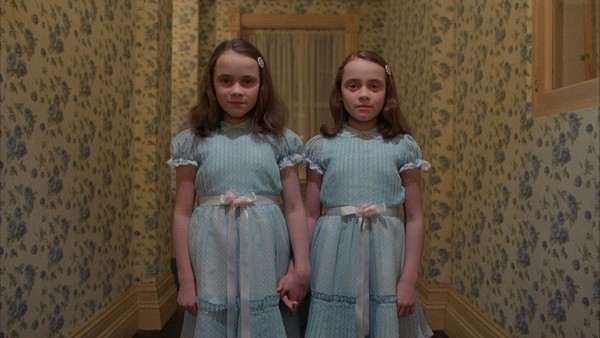
The story is probably the most subconsciousness-drilling set-piece devised yet in literature. The “deserted island” motif is transplanted to a snow-bound wilderness, the Overlook’s cavernous hallways and lengthy, repetitive passageways, as well as the hypnotic décor and empty rooms of nominally scare-free excitement making a fascinatingly isolated setting for the mental headgames Kubrick envisaged. While the exteriors of the film were shot at the Timberline Lodge in Oregon, the interiors were filmed at Elstree Studios in Britain. The film’s script was written by Kubrick and American essayist Diane Johnson, and took liberties with King’s source text, transforming much of the “in head” material into a vaguely acid-trippy effect of deliberately skewing what was real, and what wasn’t. According to legend, the shooting script changed daily for most of the shoot, with Kubrick legendarily obsessive over the film’s tone and what he wanted to achieve.
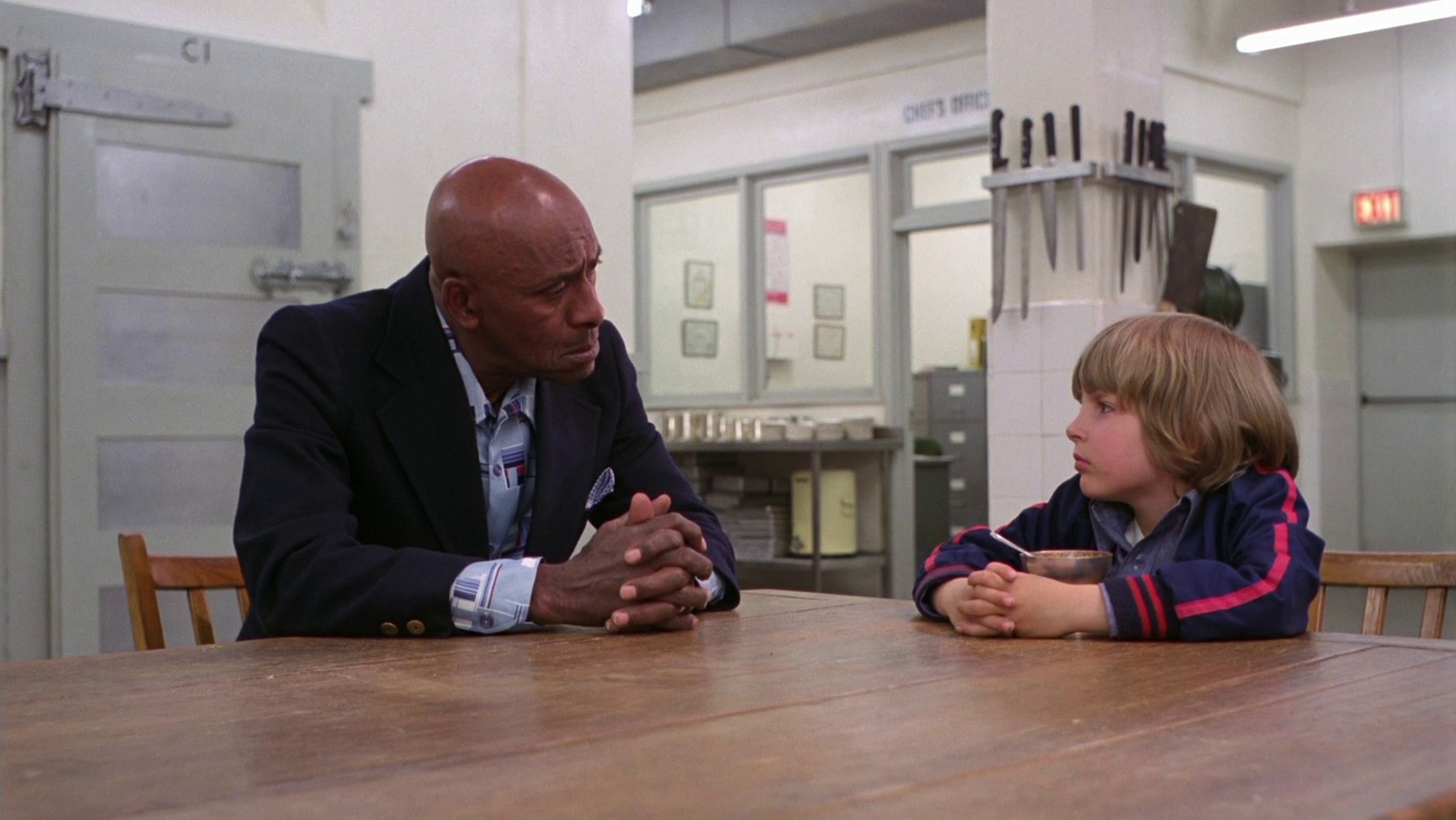
It wasn’t just the script that Kubrick obsessed over. The Shining held the record for the number of takes of a single scene – involving Shelley Duvall, who would become so frustrated and mentally exhausted during the shoot that at one point she actually collapsed – a record which was nearly eclipsed by Kubrick again during production of Eyes Wide Shut, when he demanded Tom Cruise walk through a door 97 times before he was satisfied. This attention to perfection must surely have been wearing on the cast and crew, but the high standard Kubrick brought to his production translated into magic up on the screen. The film became the first to use a specially modified steadicam, for the shots involving Danny riding his pedal scooter around the Overlook’s lengthy passageways, where the camera is close to the ground. The film is noted for its sound design and for Kubrick’s fascination with musical accompaniment – far from being a traditional orchestral score, Kubrick sampled many musical elements to construct a soundtrack designed to heighten the mood of fragile psychological states, as well as getting the audience into the mood of the movie from the outset.
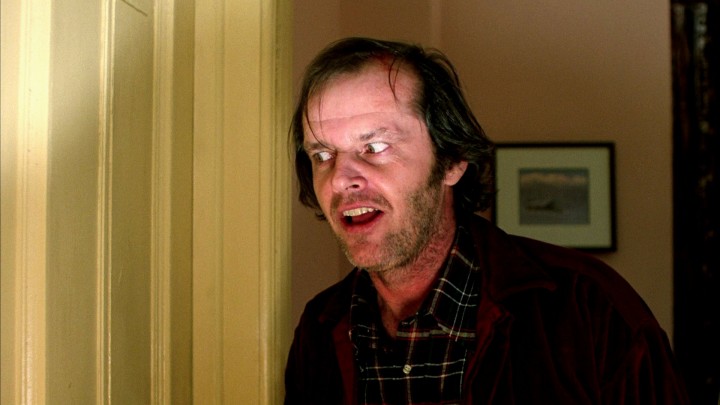
Kubrick’s work here is perhaps his most commercial, at least since Spartacus. The Shining is a traditionally told, if opaquely concluded story that satisfied the director’s narrative aesthetic while allowing the studio to make a profit from its more salacious elements. While not graphically brutal in the sense many modern horror films have become, there’s enough shocking scenes of blood and carnage (the famous Twins in the hall, covered in blood, has been referenced as one of the genre’s most iconic moments) to make you feel like it’s more bloody than it truly is. No, I think The Shining’s power is derived from not only the aforementioned isolation which is mirrored in both the Overlook’s empty corridors as well as the winding hedge-maze that becomes a final-act showdown, but it’s never too “artsy” for audiences to connect with. Kubrick had become known for his cool, distant film-making style, a style really only appreciated well after his films had been released, and I think if there’s anybody better suited to direct a film about emotional or psychological distance in a story, I’m yet to think of them.
It goes without saying that a Kubrick film rests largely on the convictions of the actors; The Shining is blessed with some terrific performances, particularly anchored by Jack Nicholson and Shelley Duvall, both of whom elevate fairly pedestrian material (I mean, the dialogue isn’t great, but it’s made better with better actors) and assure the film’s place in horror history. 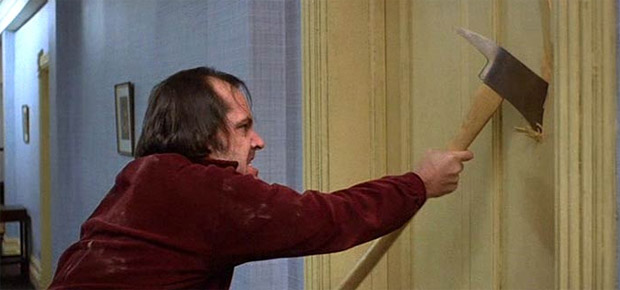
Nicholson can play wide-eyed crazy like nobody else, and while his character’s decline into madness is telegraphed early, Nicholson’s restraint early in the film is noticeable; about the mid-point, though, he starts to really go hog-wild with the zany stuff, without motivation (from a narrative perspective) and although the audience may not buy it from Kubrick’s script, the actor absolutely sells it. Duvall, meanwhile, is extraordinarily good as Wendy Torrence, whose son is exhibiting manifestations of horrors beyond her control, and whose husband is slowly slipping off the mental precipice. As far as cinematic horror wives go, she’s at the top for her performance, both emotional and exhausted by the end (perhaps that’s why Kubrick pushed her so hard), and I think she’s the equal of Nicholson for all that Nicholson brings to the film.
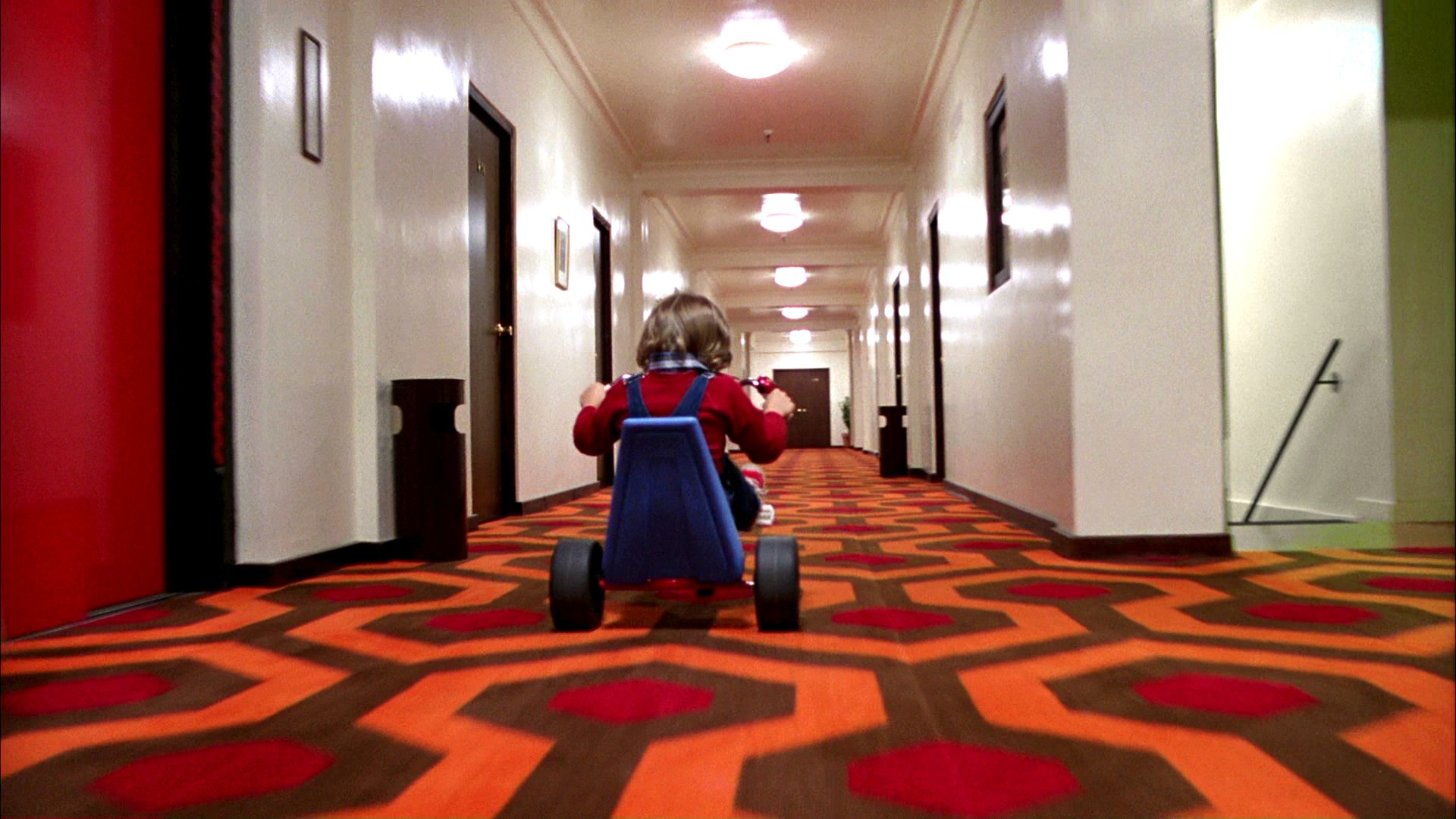
Lesser lights here are Danny Lloyd, as Danny Torrence, who has some nice moments within the film – particularly with Scatman Crothers, who looks like he’s stoned throughout the movie – and who gives us the most chills with his encounters of the hotel’s ghostly inhabitants. Kubrick managed to film Lloyd’s scenes without the kid ever knowing he was in a horror film (apparently), so the boy’s reactions and dramatic performance is restricted just enough to provide adequate plot development but not to get us “into the head” of him as a character. He was definitely one of the strongest characters in the novel, but he’s among the weaker elements here, at least from a developmental perspective. Scatman Crothers’ role is limited to basically an extended cameo, while other cast members disappear from the film after the first fifteen minutes or so once the premise kicks into gear. Phillip Stone’s creepy Delbert Grady is memorable for his quiet, understated manner.
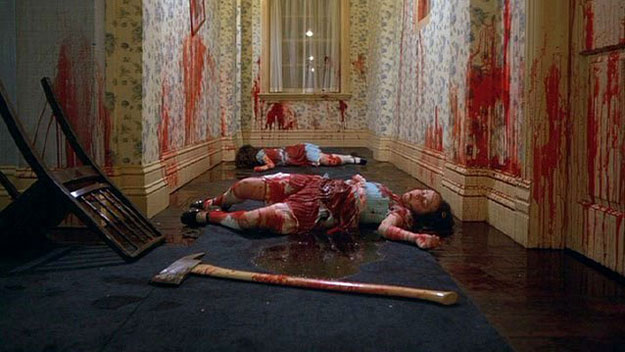
The Shining is nothing if not a powerful vision of an auteur filmmaker at the peak of his powers. Kubrick’s use of framing (famously, his will stated that home video versions of the film were to be in “open matte” format, allowing for full use of what were then square television sets) is meticulous and stylish; his up-shot framing of Jack inside the Overlook’s freezer, belting at the door trying to get out, is astonishing, while the swivel-mount shot of Jack blasting through the hotel door to get at his terrified wife and child remains one of the most terrifying moments of madness ever committed to celluloid. The many (famous) tracking shots have a hypnotic malevolence to them; you keep expecting something evil, something horrific to happen, and Kubrick waits until the tension is unbearable before unleashing his shocks. And it’s definitely a film you need to watch loud – the sound design and use of music to accentuate moments of horror, or crash-bang jump moments, requires a certain volume in order to appreciate.
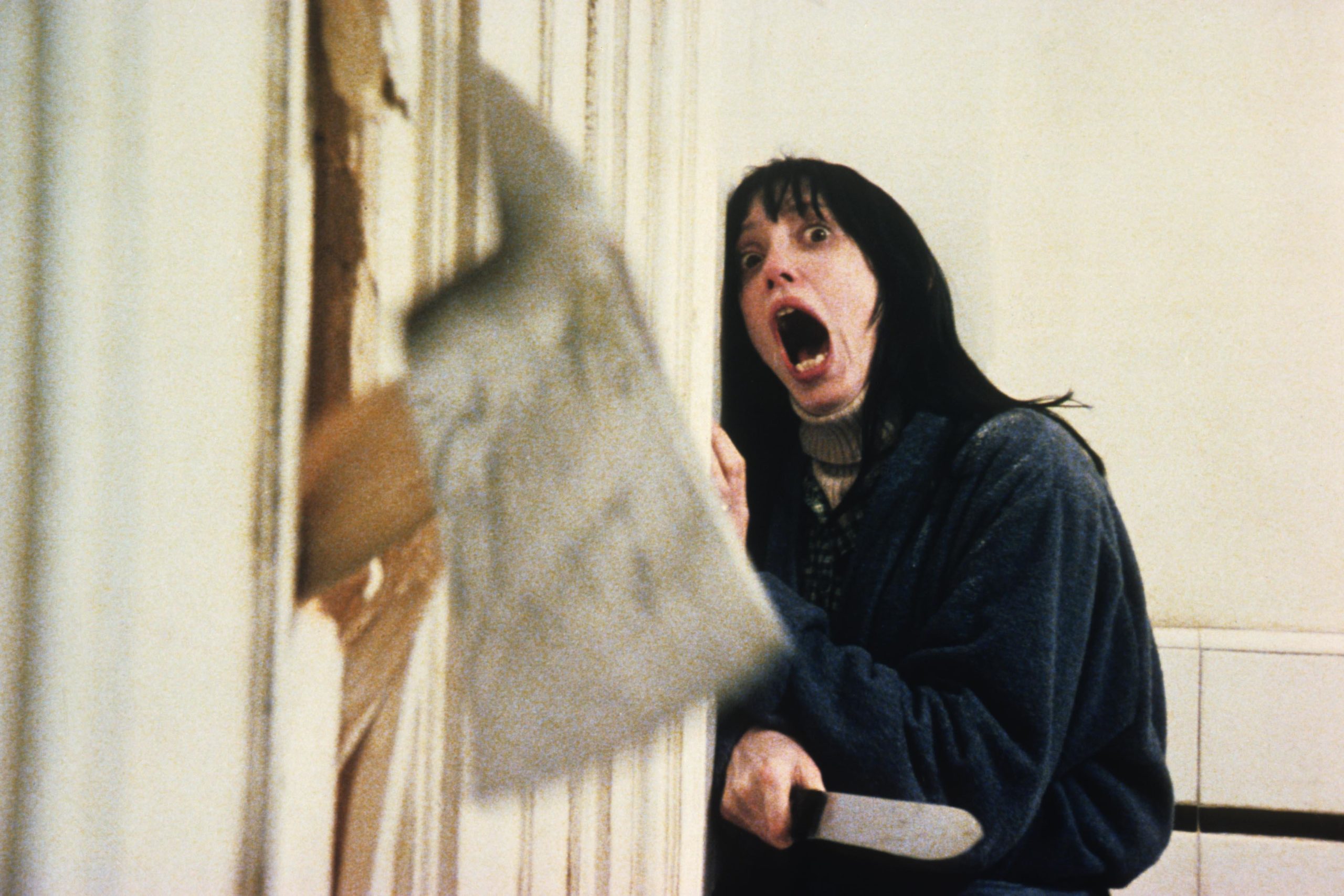
Look, if you’ve not seen The Shining then it behoves you to track it down and check it out. It’s easily one of the great horror films ever made, and possibly one of the greatest films of any genre ever made. Led by Nicholson’s deranged performance, and Kubrick’s mechanically sublime direction, this riff on Stephen King’s book may not have the blessing of the author, but sure as hell is one heck of a great movie in and of itself. It’s a terrifying, head-screwing journey into madness and insanity, a ghostly yarn laced with melancholy and unrequited sadness that chills and thrills all in one breath. Just brilliant.

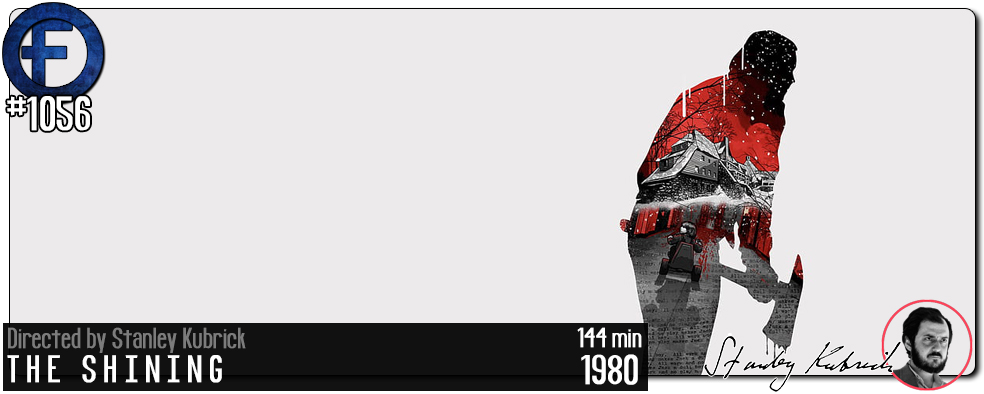
Gets better with every viewing! Great read Rodney.
My recent post Peter Strickland Seduces & Invigorates With “The Duke Of Burgundy”
Sure does! Thanks Dan!
Great review! I LOVE this film! Haven't read the book but seeing as you liked it more than the film I'll probably give it a read. Just wondering if you've heard of the prequel called The Overlook Hotel that's in development at the moment…
I haven't, no. That's a bit scary – they're making a prequel to this film….. I guess they just *have* to explain everything, don't they. 🙁